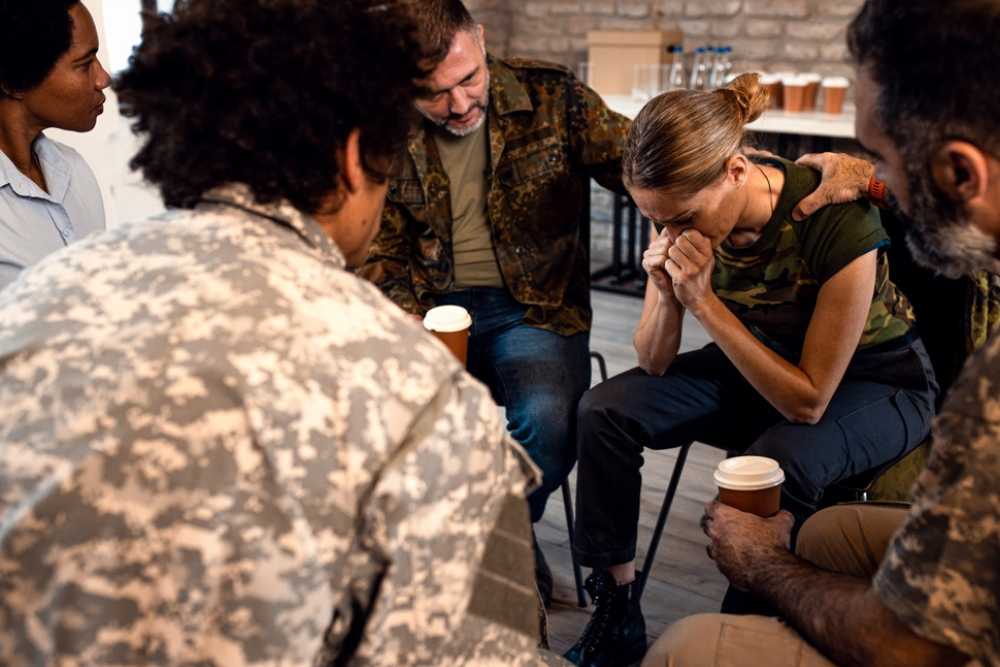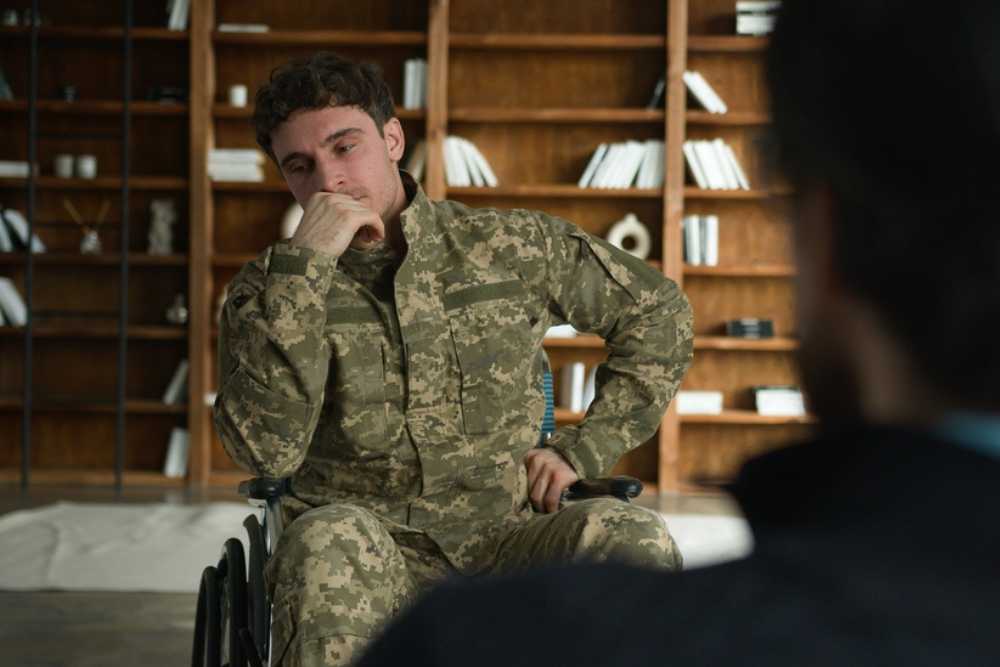Veterans often face significant challenges related to trauma from their service experiences. Combat exposure, witnessing death, experiencing life-threatening situations, and military sexual trauma can lead to complex psychological wounds, including PTSD, depression, anxiety, and moral injury. However, trauma informed care for Veterans offers a promising approach by recognizing the widespread impact of trauma and integrating this understanding into every aspect of treatment.
Unfortunately, many Veterans struggle to seek help due to stigma around mental health, the military, cultural expectations of self-reliance, or distrust of civilian healthcare providers who may not understand their unique experiences. Veteran trauma treatment emphasizes creating environments of safety, trustworthiness, peer support, collaboration, empowerment, and cultural sensitivity.
When mental health providers acknowledge the role trauma plays in Veterans’ lives without judgment, they can build the trust necessary for effective treatment. By focusing on “what happened to you” rather than “what’s wrong with you,” trauma-informed care helps Veterans reconnect with their strengths, develop healthy coping mechanisms, and gradually process traumatic memories in safe, supportive settings.
This article will explore how this mental health treatment approach for Veterans addresses the psychological and physiological effects of trauma, offering Veterans a path toward healing that honors their experiences and respects their autonomy.

What Is Trauma-Informed Care?
Trauma-informed care is an approach to mental health that recognizes the widespread impact of trauma and understands potential paths for recovery. At its core, it acknowledges signs of trauma that affect many people seeking support services and adapts care delivery to be responsive to these effects.
The key principles of trauma-informed care include:
- Safety: Ensuring physical and emotional safety for both clients and staff.
- Trustworthiness and transparency: Building and maintaining trust through clear communication and boundaries.
- Peer support: Utilizing stories and experiences from others who have faced similar challenges.
- Collaboration: Sharing power and decision-making between providers and clients.
- Empowerment: Recognizing individual strengths and building upon them.
- Cultural, historical, and gender considerations: Being responsive to cultural needs and recognizing historical trauma.
This mental health treatment approach avoids re-traumatization by creating environments where patients feel understood, respected, and supported in their healing journey. Treatment centers implementing trauma-informed care typically train all staff—from clinicians to administrative personnel—to understand trauma’s impact and respond appropriately, creating a comprehensive environment conducive to recovery and resilience.
Mental Health Treatment That Works
Call 949-625-0564How Does Trauma-Informed Care Address the Needs of Veterans?
Trauma-informed care addresses Veterans’ unique needs through several key methods. First, it recognizes the distinct nature of military trauma.
Therapy providers trained in trauma-informed care understand the complex interplay between military culture, deployment stressors, and traumatic experiences. They acknowledge that military training itself, designed to enhance survival in combat, can complicate civilian reintegration and create barriers to seeking help.
Trauma-informed care for Veterans emphasizes creating environments that respect military values while facilitating healing. This includes honoring the Veteran’s service while acknowledging its costs, understanding military terminology and experiences, and recognizing how military identity shapes trauma responses.
This approach also addresses practical barriers that Veterans face. Flexible scheduling accommodates Veterans with work or family responsibilities, while care coordination helps navigate complex VA and community systems.
The treatment extends beyond individual therapy to include family-centered approaches, recognizing that trauma affects the entire family system. By integrating evidence-based therapies like CBT and EMDR therapy for Veterans with trauma, the treatment offers Veterans pathways to healing that honor their experiences, strengths, and unique challenges.

How Does Trauma-Informed Care Differ from Traditional Mental Health Treatments?
Traditional mental health approaches often focus primarily on symptom reduction and diagnosis based on presenting problems. Trauma-informed care aims at recognizing that symptoms are often adaptive responses to traumatic experiences rather than pathologies to be eliminated.
Traditional treatments have historically positioned the provider as the expert with primary decision-making authority. Trauma-informed care deliberately shares power through collaborative treatment planning, transparent communication about all aspects of care, and respecting the patient’s autonomy in determining their healing journey.
Trauma-informed care also extends beyond the patient-provider relationship to include the entire mental health treatment center. All staff—from receptionists to administrators—receive training in trauma awareness, ensuring consistent support throughout the Veteran’s experience. This organizational approach represents a significant expansion from traditional models that concentrated expertise solely within therapeutic relationships.
Can Trauma-Informed Care Be Used Alongside Other Treatment Options for Veterans?
Yes, trauma-informed care can absolutely be used alongside other treatment options for Veterans. In fact, it works best as a complementary approach that enhances the effectiveness of various evidence-based treatments.
Trauma-informed care provides an overarching treatment that can integrate with specific therapeutic interventions like EMDR (Eye Movement Desensitization and Reprocessing) or medication management. A Veteran might receive evidence-based PTSD therapy while their entire treatment team—from psychiatrist to case manager—applies trauma-informed principles throughout their care journey.
The trauma-informed approach creates safety and trust that helps Veterans engage more effectively with intensive trauma-focused therapies. It can also improve medication adherence when providers take time to explain prescriptions thoroughly and respect Veterans’ concerns about potential side effects, like emotional dependency.
Many comprehensive Veteran treatment programs successfully combine approaches, such as pairing trauma-focused psychotherapy with trauma-informed complementary practices like mindfulness, yoga, or art therapy. VA medical centers increasingly incorporate trauma-informed principles into whole health initiatives that address physical health, substance use treatment, vocational rehabilitation, and housing services alongside mental health care.
The key is to ensure all aspects of care align with trauma-informed principles while delivering effective interventions tailored to the Veteran’s specific needs, preferences, and recovery goals.
Access Trauma Informed Care for Veterans at Moment of Clarity
At professional treatment centers, trauma-informed care for Veterans creates an environment specifically designed to address the complex needs of Veterans facing mental health challenges. These specialized centers implement comprehensive approaches where every aspect of care, from the initial intake process to ongoing treatment, acknowledges the impact of military trauma.
Moment of Clarity in Southern California offers specialized programs for Veterans that allow them to feel truly seen and understood, often for the first time since leaving service. Our mental health treatment center utilizes trauma-informed principles to create physically and emotionally safe spaces where Veterans can gradually lower their hypervigilance, establishing the foundation of trust necessary for meaningful therapeutic work.
The comprehensive, coordinated approach provided helps Veterans rebuild a sense of meaning, purpose, and identity beyond their trauma experiences, supporting successful reintegration into civilian life. Please contact Moment of Clarity at 949-625-0564 to access trauma-informed care for Veterans today.
External Sources
- U.S. Department of Veterans Affairs – Trauma-informed Care
- National Library of Medicine – Trauma-Informed Training for Veterans Treatment Court Professionals: Program Development and Initial Feedback
- National Veterans Foundation – Veterans Trauma-Informed Care: What You Need to Know




